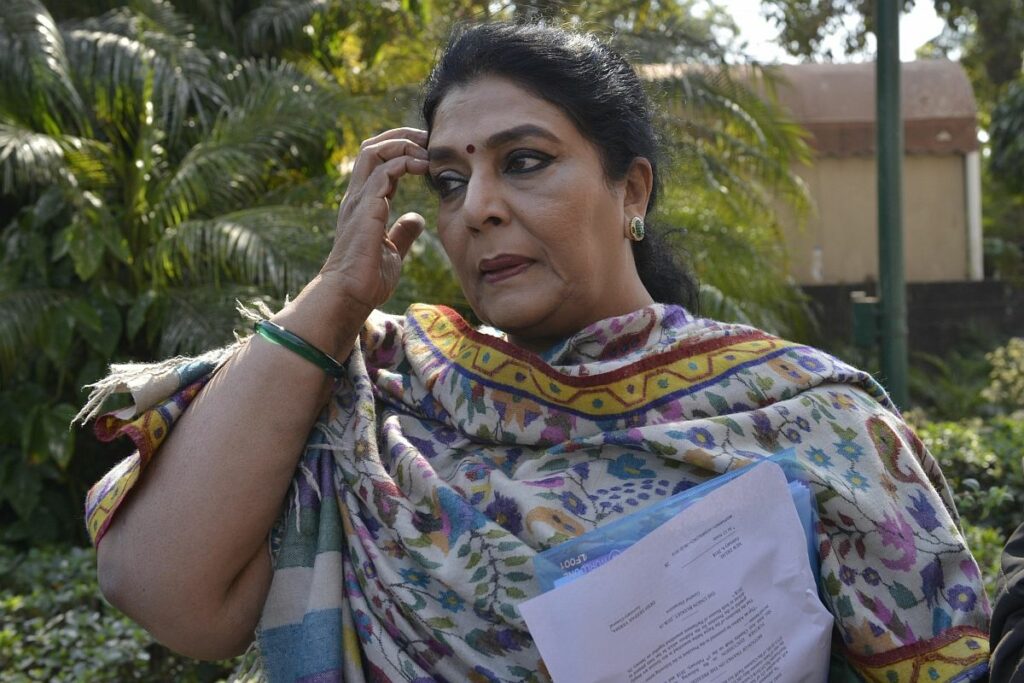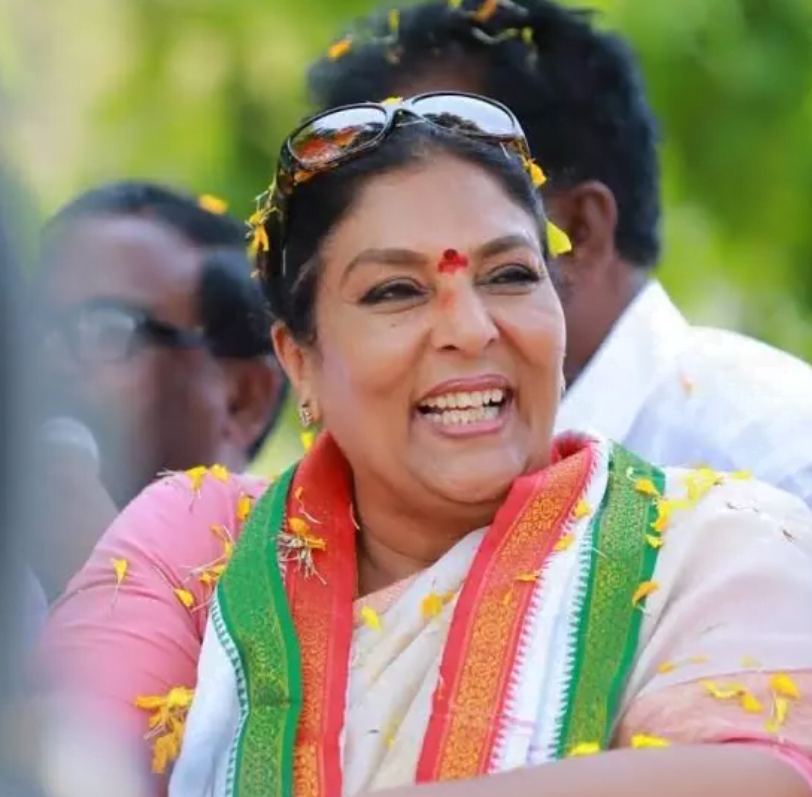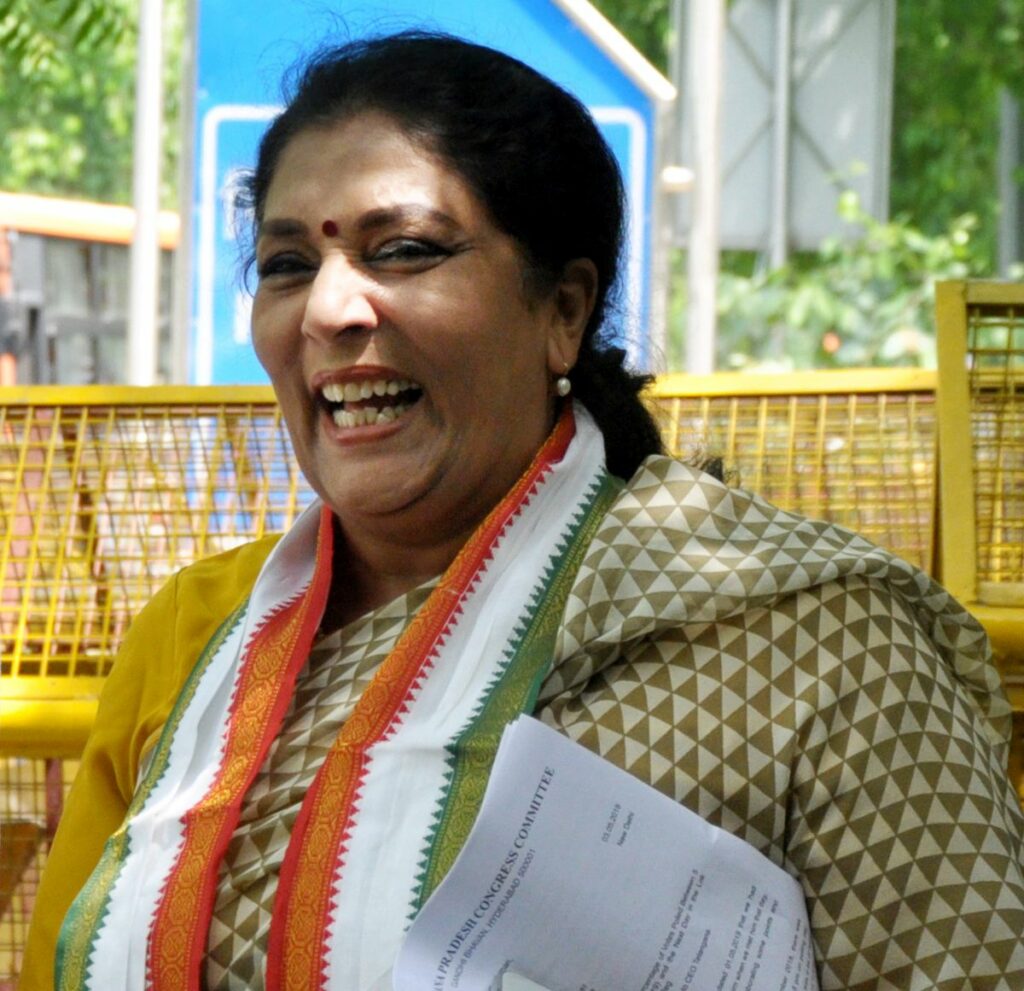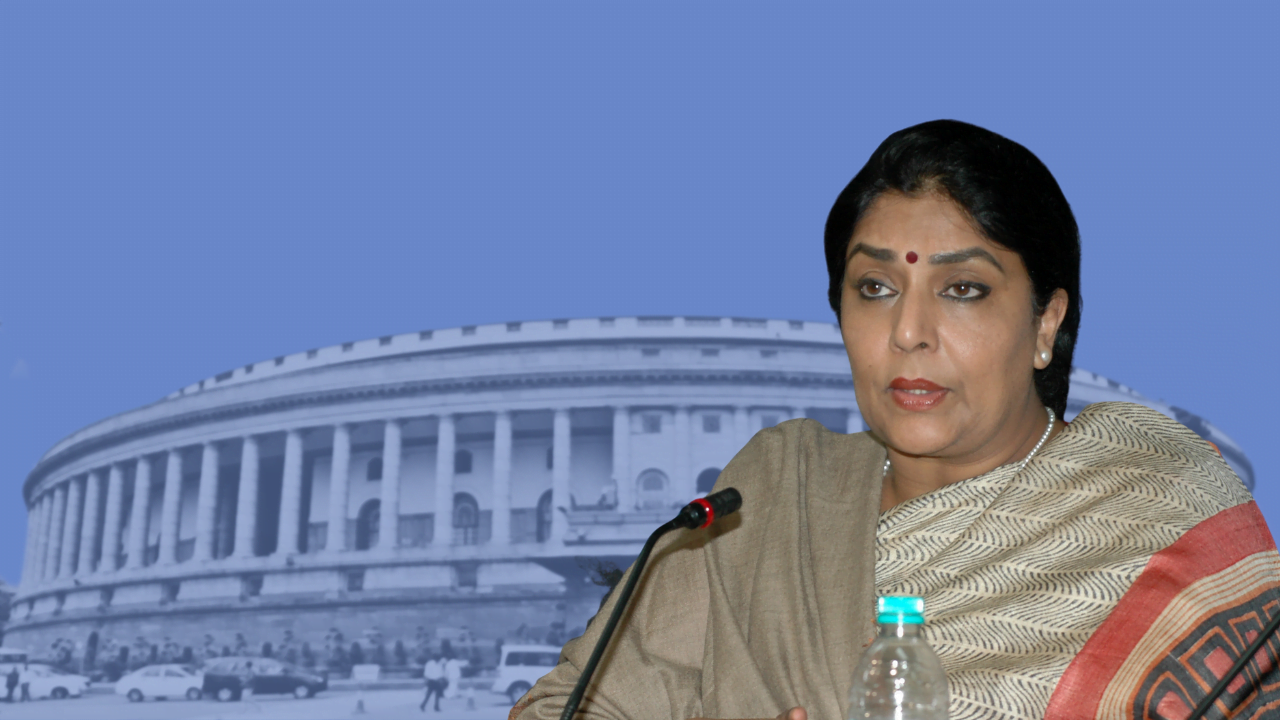Born on August 23, 1954, in Visakhapatnam, Andhra Pradesh, Renuka Chowdhury’s political journey is a testament to her unwavering commitment to public service. She has etched her name in the annals of the country’s history through her relentless pursuits in the political spectrum. She is currently active with the Indian National Congress (INC), and she saw the political route as a tool to channelise her energy to bring a difference in society and to make people’s lives better.
Pursuing her education with utmost dedication, Chowdhary earned a Bachelor’s degree in Arts from Andhra University before completing her Master’s in Political Science. Her academic pursuits also played in addition to building a deep understanding of the political dynamics and societal issues of the country, which further laid the foundation for her future endeavours in politics.
Tracing Renuka’s early days
Emerging as a prominent figure, she earned voice within the Telugu Desam Party and won the first electoral battle securing a seat in the Rajya Sabha from 1984-1986 which led her to work passionately for gender equality. Also, as the Union Minister, she served as State for Health and Family Welfare in the Deve Gowda cabinet during 1997-98. And then, joining Congress in 1998, she represented Khammam Lok Sabha constituency.

From January 2006 to May 2009, as the Union Minister of the Ministry of Women and Child Development, she began the advocacy of women’s rights. She played a pivotal role in shaping legislation aimed at combating violence against women. Her constant effort to ensure the Protection of Women from domestic violence led to the passing of the Domestic Violence Act 2005. This act is a comprehensive legal framework designed to address the pervasive issue of domestic violence against women in India. The act recognises various forms of abuse, including physical, emotional, verbal, sexual, and economic, and provides for a range of protective measures to assist victims and punish perpetrators.
In an exclusive interview, she mentioned “If not eradicated {domestic violence} it {the law} will at least help set directions for men to behave. A lot of men don’t realise that what they do naturally is actually not acceptable as societal norms. So we will be able to give direction.”
Her legislative accomplishment is something worth noting. She was able to hold several ministerial positions in the Indian government when at a time women in politics were very few in decision-making positions, where she spearheaded initiatives aimed at empowerment programmes and at promoting social welfare. She also led the implementation of schemes to improve maternal and child health, expanded the accessibility of education for girls, and enhanced opportunities for women’s economic status. Renuka Chowdhury’s exemplary track record as a parliamentarian has, therefore, been through the struggle for justice yet a powerful journey to inspire everyone.
Renuka’s major Schemes and Initiatives
During her active leadership in the Ministry of Women and Child Development launched several flagship programs, including the Integrated Child Development Services (ICDS) scheme,1975, which includes the most successful programs for early childhood care and development. It aims to provide holistic services to children under six years of age, pregnant persons, and lactating persons, with a focus on nutrition, health, and early education.

Consequently, the diligence brought significant enhancements in its coverage, the quality of services and outreach efforts. Prioritising to improve the nutritional status of children and women, she advocated for increased funding, better infrastructure, and capacity building to ensure the effective implementation of the program at the grassroots level.
The Beti Bachao, Beti Padhao campaign was launched in 2015 (Save Girl Child, Educate Girl Child) campaign, to address the declining child sex ratio and promote the education and empowerment of girls in India. The initiative focuses on combating female foeticide, improving access to education for girls, and creating an enabling environment for their holistic development. Here, Renuka played a key role in conceptualising and championing the Beti Bachao, Beti Padhao campaign as Minister of State for Women and Child Development.
Recognising the urgent need to address gender discrimination and inequality, she mobilised collective efforts in support of the campaign and garnered resources for its implementation.
Chowdhury’s advocacy efforts focused on raising awareness about the value of girls, challenging harmful stereotypes and prejudices, and advocating for policy interventions to safeguard their rights and promote their education. She collaborated with various stakeholders, including government agencies, civil society organisations, and grassroots activists, to drive the campaign’s objectives forward.
Likewise, her tenure as Minister of State for Tourism too, witnessed a renewed focus on promoting India as a premier tourist destination while ensuring sustainable development in the sector. She worked to preserve cultural heritage sites, to showcase India’s rich cultural diversity to the world.
What can we picturise?
Throughout her career, Renuka Chowdhury therefore, has left an indelible mark on Indian politics, earning widespread admiration and respect for her commitment to public service and advocacy for social change. Her legacy as a champion of women’s rights, social justice, and inclusive development continues to inspire future generations of leaders to follow in her footsteps and strive for a more equitable and just society.

Chowdhury’s resilience in the face of adversity, her undying dedication to the rescue of the marginalised, and her tireless efforts to bring about legislative reforms stand as a testament to the transformative power of a successful leadership while enduring the impact in public service largely.
As she continues her journey in the realm of politics, Renuka Chowdhury remains a beacon of hope, embodying the principles of integrity, compassion, and empowerment that lie at something that should lie at a heart in the potential candidates, in a heart of true leaders.
About the author(s)
Susmita Aryal is a final year student of English Literature and Journalism at St. Xavier's College, Maitighar, Kathmandu. Besides storytelling around identity, gender and society, she is interested in 'art' i.e. any kind of artworks that fall under the genre of art.





